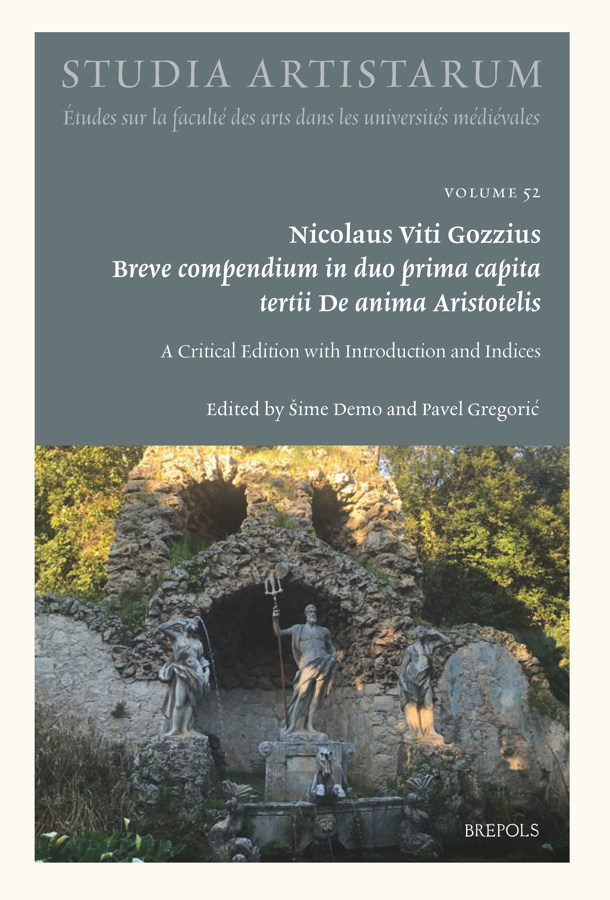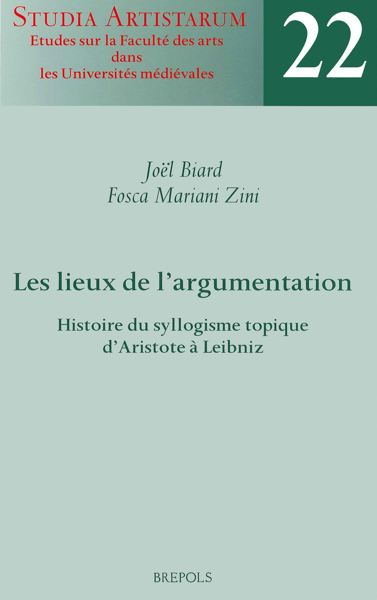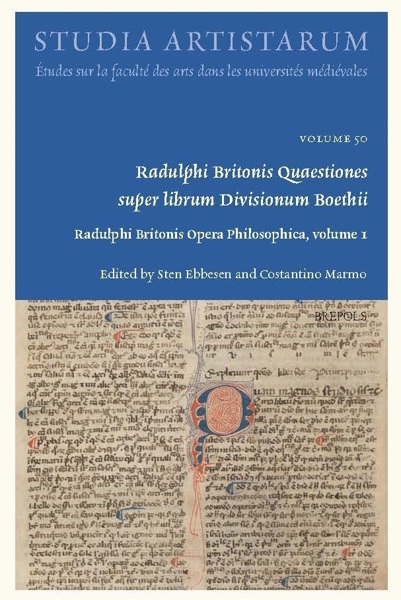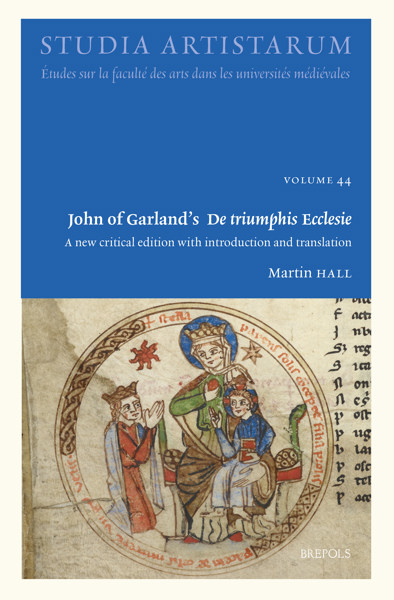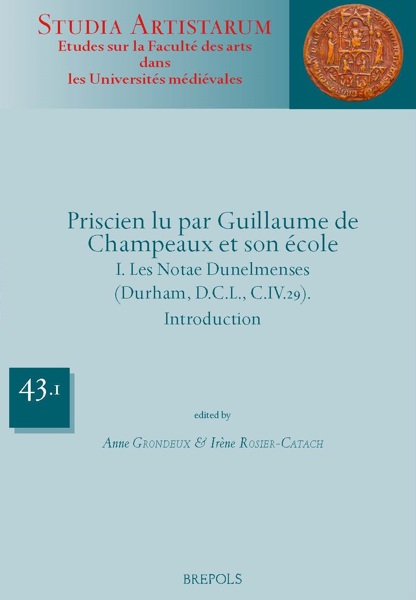
Nicolaus Viti Gozzius
Breve compendium in duo prima capita tertii De anima Aristotelis
A Critical Edition with Introduction and Indices
Šime Demo, Pavel Gregorić
- Pages: iv + 134 p.
- Size:156 x 234 mm
- Illustrations:2 b/w
- Language(s):English, Latin
- Publication Year:2024
- € 70,00 EXCL. VAT RETAIL PRICE
- ISBN: 978-2-503-60758-0
- Hardback
- Available
- € 70,00 EXCL. VAT RETAIL PRICE
- ISBN: 978-2-503-60759-7
- E-book
- Available
This is the first edition of a Renaissance compendium of philosophical and theological problems arising from Aristotle’s De anima Book 3, Chapter 4, by Nikola Vitov Gučetić (1549–1610), a prominent statesman and scholar from Dubrovnik.
Nicolaus Viti Gozzius (Nikola Vitov Gučetić, 1549–1610) was a prominent statesman and scholar in the Republic of Dubrovnik. He wrote theological and philosophical tractates, Platonic dialogues, and erudite commentaries on Aristotelian works. His writings earned him membership in several Academies and the honorary title of Doctor of Philosophy and Theology, awarded by Pope Clement VIII.
This is the first edition of Nikola Vitov Gučetić’s (1549–1610) compendium of philosophical and theological problems arising from Aristotle’s De anima Book 3, Chapter 4, where he begins his discussion of the thinking part of the soul, that is, the intellect (nous). With the interpretation of Averroes (1126–1198), this text has structured much of the debate on the immortality of the soul in the Middle Ages and the Renaissance. Gučetić’s Breve compendium is a testament to these debates, interesting for its selection of issues for discussion in connection with Aristotle’s text, and for its open defence of the Averroist position in the late decades of the 16th century. Although Gučetić had a preliminary arrangement with Aldo Manuzio the Younger to print this text around 1590, at some point he abandoned the plan to publish it.
The main purpose of this book is to provide a critical edition of the Latin text for scholars in the humanities, especially historians of late Medieval and Renaissance philosophy. The edition is accompanied by an introductory study that places the author and his work in the historical and intellectual context, describes the manuscript, and gives a detailed synopsis of the work. This will make the book useful also to students of the humanities and those interested in the history and culture of Dubrovnik.
I Introduction
1 On the author of Breve compendium
1.1 Life of Nikola Vitov Gučetić
1.2 Works published in the author’s lifetime
1.3 Works surviving only in manuscript form
2 On Breve compendium
2.1 The title and aim of Breve compendium
2.2 The subject and context of Breve compendium
2.3 The position and message of Breve compendium
2.4 The structure and character of Breve compendium
2.5 The language of Breve compendium
2.6 The sources of Breve compendium
2.7 Dating of Breve compendium
3 On the manuscript and this edition of Breve compendium
3.1 Cataloguing history
3.2 Description of the manuscript
3.3 Features of the text
3.4 Editorial principles
4 Bibliography
4.1 Works of Nikola Vitov Gučetić published in his lifetime
4.2 Unpublished works of Nikola Vitov Gučetić
4.3 Modern editions and translations of Nikola Vitov Gučetić’s works
4.4 Secondary literature
5 Synopsis of Breve compendium
6 Abbreviations and sigla
6.1 Abbreviations for author names and book titles
6.2 Editorial abbreviations
6.3 Sigla
II Nicolaus Viti Gozzius: Breve compendium in duo prima capita tertii De anima Aristotelis (critical edition)
III Indices

